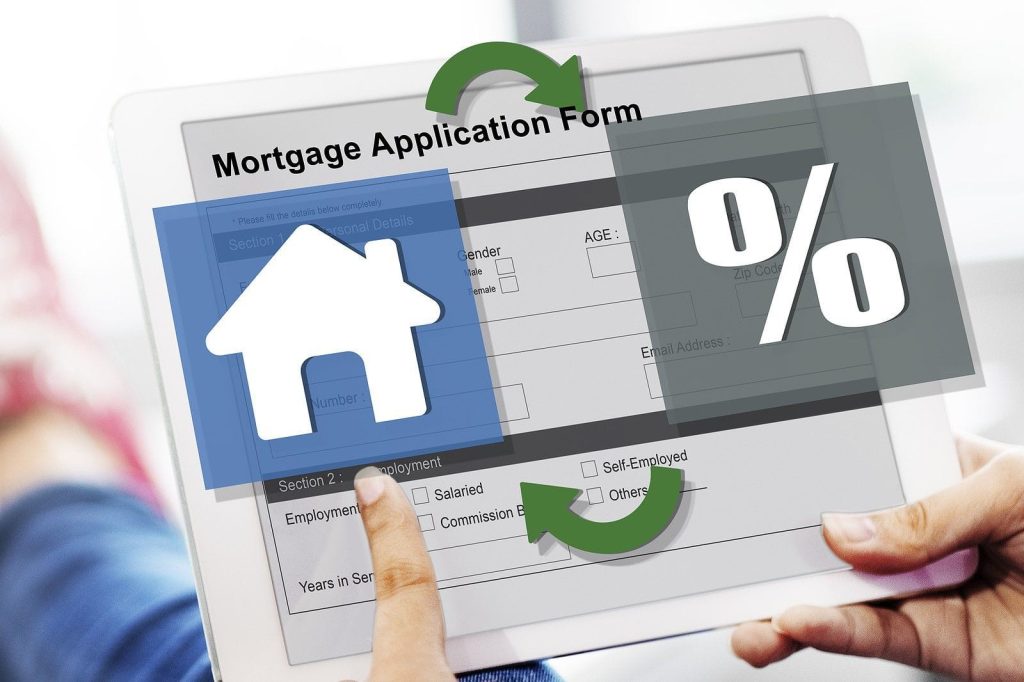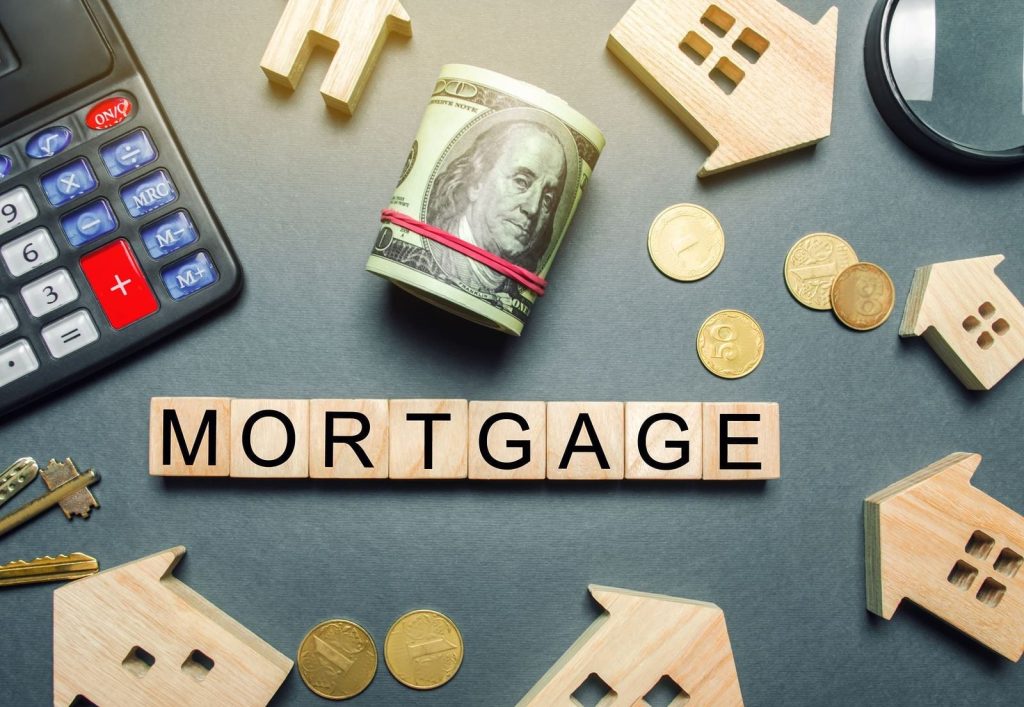Best way to get a Mortgage for a Home Over $2,000,000
October 4, 2022- Are the current Mortgage Rates historically low?
- Current Mortgage Rates on Investment Properties
- How do Investment Property Mortgage Rates differ from Residential Property Mortgage Rates?
- How to get better rates on Investment Property Mortgages
- What are Mortgage Rates on Investment Properties?
- What are the Current Mortgage Rates on Investment Properties?
- What are the options for an investment property mortgage?
- What factors affect investment property mortgage rates?

Purchasing an investment property or a rental property is one of the easiest ways to make money off real estate. These properties allow you to generate income from rental payments or equity appreciation, i.e., holding on to the property for a while and then selling it for a profit.
Purchasing and holding this kind of property carries risks, just like any investment, and the financing criteria are considerably different from those for a permanent dwelling. This piece explores the current mortgage rates on investment properties, as well as other requirements needed to make an investment property purchase.
What are Mortgage Rates on Investment Properties?
An investment property mortgage refers to a loan obtained to purchase an income-generating property. This loan is typically secured by the property purchased with it. Thus if the borrower defaults on the loan payment, the lender can foreclose the property.
An investment property mortgage rate is the interest rate a borrower pays on an investment property mortgage. This rate is expressed as an annual percentage and may be represented by the pure interest rate or the annual percentage rate (APR).
The percentage you pay as interest on a loan from a lender for a given time is your pure interest rate. Your mortgage interest rate may be fixed, which means it will remain the same for the entire term of your loan. However, the interest rate on your mortgage could be variable, meaning it could fluctuate based on market conditions. You are responsible for repaying the principal, the initial sum you borrow, and any accumulated interest.
At the beginning of your loan term, you will typically pay more in interest since the principal is high. However, as you make monthly payments and reduce your principal, your interest payments progressively reduce, and more of your monthly payments are directed towards your principal. This is known as an amortization schedule.
You can use the formula to calculate how much you will pay monthly on your loan;
M = P [ i(1 + i)^n ] -/ [ (1 + i)^n – 1]
Where;
- M = monthly mortgage payment
- P = the principal amount
- i = your monthly interest rate. Your lender likely lists interest rates as an annual figure, so you’ll need to divide by 12 for each month of the year. So, if your rate is 3%, the monthly rate will be 0.03/12 = 0.0025.
- n = the number of payments over the life of the loan. Taking out a 30-year fixed rate mortgage means: n = 30 years x 12 months per year or 360 payments.
Your APR includes not just your interest rate but also any prepaid interest, private mortgage insurance (PMI), closing costs, mortgage points (also known as discount points), and any other fees you might be required to pay when taking out your loan. The APR does not reflect what you will pay monthly on the loan. Rather, it is a more extensive measure of the cost to borrow money that takes additional fees into account. Usually, you will pay these fees before signing the paperwork for the loan.
How do Investment Property Mortgage Rates differ from Residential Property Mortgage Rates?

Investment property mortgage rates are always higher than residential property mortgage rates, typically by 0.5-0.85%. Investment properties are considered a higher risk for lenders than primary residential or second-home mortgages. This comes from the fact that investment properties are usually not owner-occupied and are usually taken by borrowers who already have a primary home mortgage.
In the case of a financial setback, borrowers are more likely to honor the mortgage payment on their primary residence than on a property they do not live in. Investors who plan to make mortgage payments through rental income will be unable to do so if the tenants default on their rent. Thus, the default rate on investment properties is typically high.
Many lenders shy away from giving loans for investment properties. However, those that do set very steep requirements for investors. These steep requirements aim to disqualify the most incapable people from taking investment property loans.
What Factors affect Investment Property Mortgage Rates?
There are many economic and personal factors that determine how much interest you will pay on an investment property mortgage. These factors include
Inflation
Inflation typically raises mortgage interest rates because it weakens the value of the dollar. Although inflation doesn’t directly affect mortgage rates, it can nonetheless lead to a rise in those rates. All prices, including mortgage rates, rise in line with inflation.
Lenders must set mortgage rates at amounts that maintain their actual profit when there is inflation. As an illustration, if a lender typically sets a mortgage at 5% and there is 2% inflation, their true profit is now 3%. To make close to their 5% profit, the lender must put mortgage rates at 6 or higher. Additionally, investors’ demand for mortgage-backed bonds declines when inflation rises. Mortgage-backed securities’ prices decrease when demand declines. As a result, all forms of mortgages have higher interest rates.
Thus, buying a property during inflation is typically costly, resulting in higher interest rates that mean you pay more monthly.
Economic growth
In times of economic expansion, mortgage rates also typically increase. More people qualify for mortgages during these times, characterized by higher GDP and employment rates, which raises demand. Mortgage costs rise due to the rising demand for mortgages, which is reflected in increased interest rates.
Federal reserve policies

Policies set by the federal reserve can affect the availability of money. These policies can drive the money supply upwards or downwards, with mortgage rates going in the opposite direction.
Trends in the housing market
Housing market trends coupled with consumer behavior significantly influence mortgage rates. When there are more houses for sale, with matching demand for these houses, mortgage rates tend to rise. Conversely, limited houses with higher demand increase mortgage rates even further. When there are many houses available but less demand, rates crash drastically, while having few available homes with low demand may reduce the rates slightly.
Credit score
Your credit score is the most important personal factor that affects your available loan rate. Lenders typically want higher credit scores when lending money for an investment property. Some lenders will only offer you an investment mortgage if your credit score is 680 or above, but others will accept a score as low as 640. However, lenders will often give you better rates if your credit score is higher. As a result, where a 680 credit score may result in a 5.3% interest rate on a 30-year fixed mortgage, a 740 credit score may result in a 5.1% interest rate.
Debt-to-income ratio
You must have a very low income-to-debt ratio in order to qualify for investment property mortgages. Lenders want to be confident that you have a steady, reasonable income that isn’t primarily used to pay off debt. As a result, whereas you can obtain a home mortgage with a DTI of up to 43%, a loan for investment property requires that your DTI not be higher than 36%, while lower scores will even give you better rates.
Loan-to-value ratio
The loan-to-value ratio is calculated by dividing the amount of money needed to buy a property by its appraised value. A lower down payment means a higher LTV and vice versa. Most of the time, lenders view investments with high LTVs as high-risk. As a result, the LTV and mortgage rates rise in tandem.
Cash reserves
Investment property lenders want to know that you have adequate resources to cover mortgage payments without relying on rental income. Therefore, before they approve you for an investment property loan, lenders will want to confirm that you have enough cash reserves in the bank or readily liquid assets to cover at least six months’ mortgage payments.
What are the Options for an Investment Property Mortgage?

As an investment property buyer, there are different loan options available to you. Each option has unique characteristics, including interest rates, terms, down payments, etc. As a result, each loan offers a better alternative for a different scenario than others. Some of the most common investment property loan mortgages include;
Conventional investment property mortgages
Conventional loans follow Fannie Mae and Freddie Mac guidelines but are not backed by the government. You’ll probably be eligible for a conventional residential property loan if your credit score is at least 620 and your debt-to-income ratio is at least 45%. A credit score of 680 or higher and a DTI of 36% or less are required for a mortgage on an investment property. A bigger down payment of at least 20% or even up to 30% may also be required. Conventional loans for investment properties are not provided by every bank. Therefore, you must conduct a thorough study and rate comparisons for applying for a conventional investment property loan. Even though there are options for fixed-rate mortgages, most banks will only offer adjustable-rate mortgages for investment properties due to the risk associated.
Jumbo Loans
A jumbo loan is a mortgage loan that exceeds the limits set by the Federal Housing Finance Agency (FHFA). They are also known as non-conforming loans and do not adhere to the rules set by Fannie Mae and Freddie Mac. Jumbo loans work very similarly to conventional loans. However, these loans are typically reserved for the purchase of super-expensive properties. In addition, the provider fully bares the risks of these loans. Jumbo loans are typically taken to finance the purchase of properties between $650,000 and $3 million.
You’ll need a minimum credit score of 700, 12 months of cash reserves, and a minimum 20% down payment to be eligible for a jumbo loan on an investment property. Jumbo loans carry a lot of risks; therefore, lenders may charge higher interest rates. Thus, jumbo loans often have interest rates that are 0.25 to 1% more than conventional loans.
Hard Money Loans
Conventional loans and hard money loans are significantly different. Individuals and private lending firms, as opposed to conventional banking institutions, issue these loans. Since hard money lenders don’t frequently check your credit history, getting a loan is simpler. They instead take into account your real estate investing background and skills, as well as the property’s potential for income generation.
You might be able to receive good rates from hard money lenders with a greater down payment and cash reserves. Quick loan approvals make hard money loans the best choice for last-minute purchases – Hard money loans are useful when you want to remodel a house and sell it for a rapid profit.
Hard money loans do have a lot of drawbacks, though. Most notably, these loans have extremely short periods and enormous interest rates. Lenders frequently set rates as high as 11–13% with terms less than 35 months. Despite how easy they are to obtain, hard money loans are unreliable if you want to hold onto a home for a long time. Thus, they are mostly reserved as a last resort for a quick fix and flip.
Other mortgage loans available to investment property investors include;
- Private money loans
- Home equity/HELOC loans
- Bridge loans
- Cash-out refinance
- Owner financing
You can read up more on these different investment property mortgage types here.
What are the Current Mortgage Rates on Investment Properties?
The average investment property rates differ across cities and according to which lender you borrow from. Typically, the average investment property rate is 0.5-0.85% higher than the average rate on residential mortgages. This puts the current interest rates on investment properties at around 6.93% to 7.18% (7.185 – 7.29% APR) for a 30-year fixed mortgage on a single-unit investment property.
However, these rates are based on the assumption that you have a FICO score of above 700 and make a 20%. You will get higher interest rates if you do not meet these requirements.
The table below compares the average investment property 15-year fixed, 30-year-fixed, and ARM rates between different U.S. states
| State | 15-year fixed | 30-year fixed | 7/1 ARM |
| National Average | 6.13-6.38% | 6.93-7.18% | 6.4-6.65% |
| Alaska | 6.45-6.7% | 7.56-7.81% | 5.625-5.875% |
| Arizona | 6.05-6.3% | 6.85-7% | 6.4-6.65% |
| California | 6.32-6.57% | 7.4-7.65% | 5.625-5.875% |
| District of Columbia | 6.26-6.51% | 7.1-7.35% | 6.2-6.45% |
| Florida | 6.315-6.34% | 7.138-7.388 | 6.26-6.51% |
| Illinois | 6.05 – 6.3% | 7.37-7.62% | 6.5-6.75% |
| Maryland | 6.44-6.69% | 7.31-7.56% | 6.46-6.71% |
| Michigan | 6.24-6.49% | 6.845-7.185% | 6.35-6.6% |
| New York | 6.63-6.88% | 7.3 – 7.55% | 5.625-5.875% |
Note that all displayed rates may change considerably over the coming days as the market is volatile.
Are the current Mortgage Rates historically low?
The U.S. housing market has seen a significant rise in mortgage rates over the course of 2022. Although the year opened with historically low rates, the current rates have returned to values seen pre-2020.
The highest mortgage rates witnessed in the U.S. housing market came in the 1980s, when mortgage rates rose beyond 18%. Since the 1990s, U.S. average mortgage rates have consistently fallen. However, following the housing and financial crisis in 2008, mortgage rates plummeted, reaching their lowest historical value in November 2012, with mortgage 30-year fixed rates reaching 3.32%. The mortgage rates remained stable but then reached their lowest rates ever in December 2020. In that period, average 30-year fixed mortgage rates reached 2.67%, the lowest ever in history.
Mortgage rates opened up low in 2022, with average 30-year fixed rates at about 3.22% in early January. However, with rising inflation and economic uncertainty caused by the Russia-Ukraine war, the rates have consistently risen throughout the year, reaching the relatively high values they are currently at.
How to get better rates on Investment Property Mortgages
The mortgage rates for investment properties are typically high, especially in today’s market. If you’re thinking of taking a loan, there are some actions that can help you get better interest rates. These include
- Boosting your credit score: The higher your credit score, the more trustworthy lenders see you. A higher credit score of around 740 and above will get you juicer interest rates.
- Make larger down payments: Your down payment signifies your commitment to the property and fosters trust with the lender. Landers offer you better rates with significantly higher down payments. If you can afford it, make a 30% down payment on an investment property.
- Improve your debt-to-income ratio: A low DTI tells a lender that you’re not a big risk. In turn, they can trust you with smaller percentages.
Conclusion
While investment property mortgage rates today are relatively higher than they were at the beginning of the year, they are historically lower than in the 90s and comparable to 21st-century average rates. If you’re thinking of buying an investment property, now may be a good time as the economic projections do not necessarily signify a downward trend in mortgage rates.
Ensure to research different lenders in your area to compare their rates, service and terms before making a commitment to taking an investment property mortgage.
Aurum and Sharpe offer a range of mortgage options for investment properties. These include non-QM loans and cash-out refinance for these properties. Reach out to us today at 9177404325 to book an appointment, or use the online form to get in touch.
Mortgage Rates
DSCR Mortgage: 7.375%
Commercial Mortgage: 7.5%
Single family, Condo Investment Property: 7.375%
Portfolio of Residential Homes: 7.5%
Calculate Your Monthly Payment
Mortgage Information
Monthly Payment
Principal and Interest: $0
Total Monthly Payment: $0


